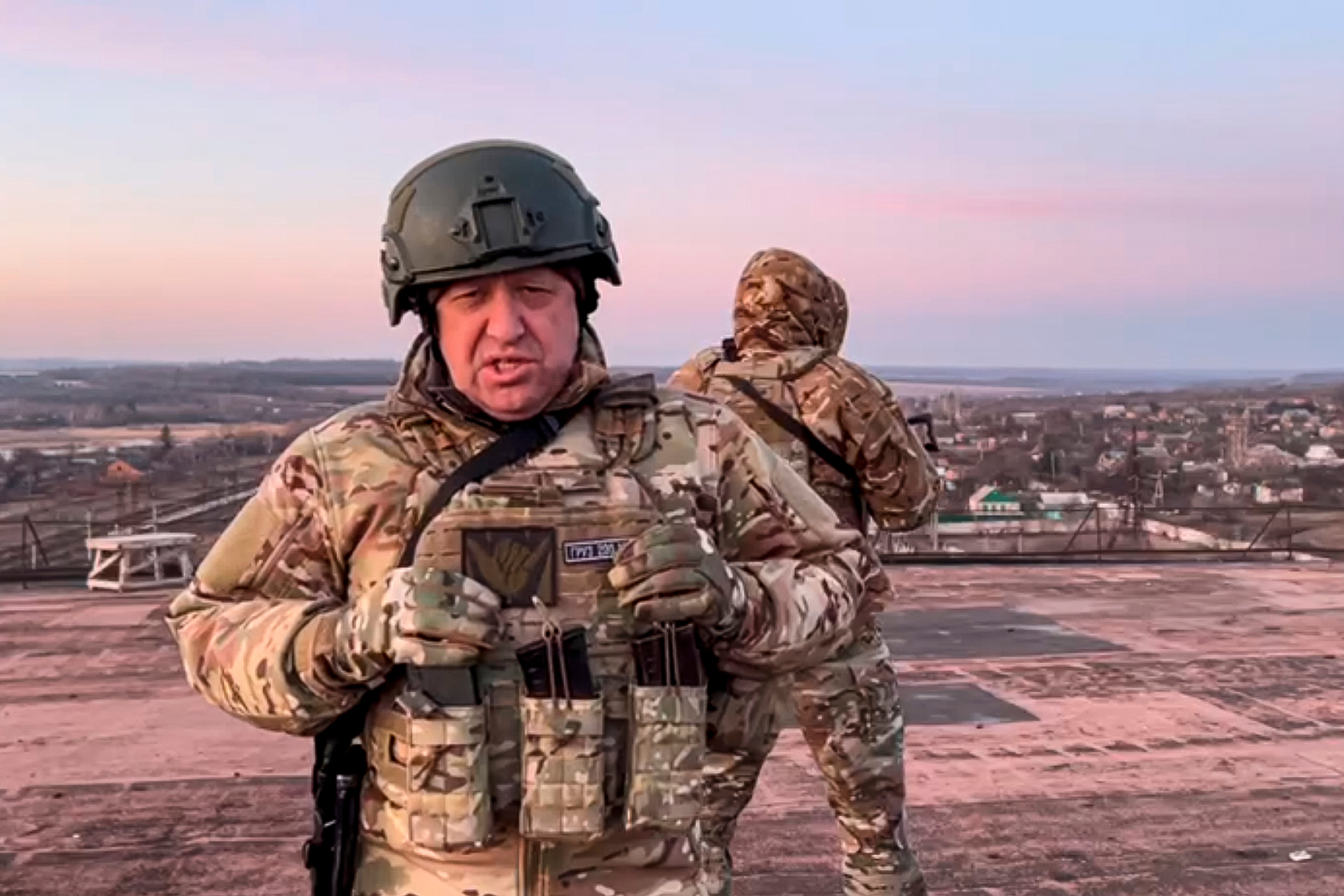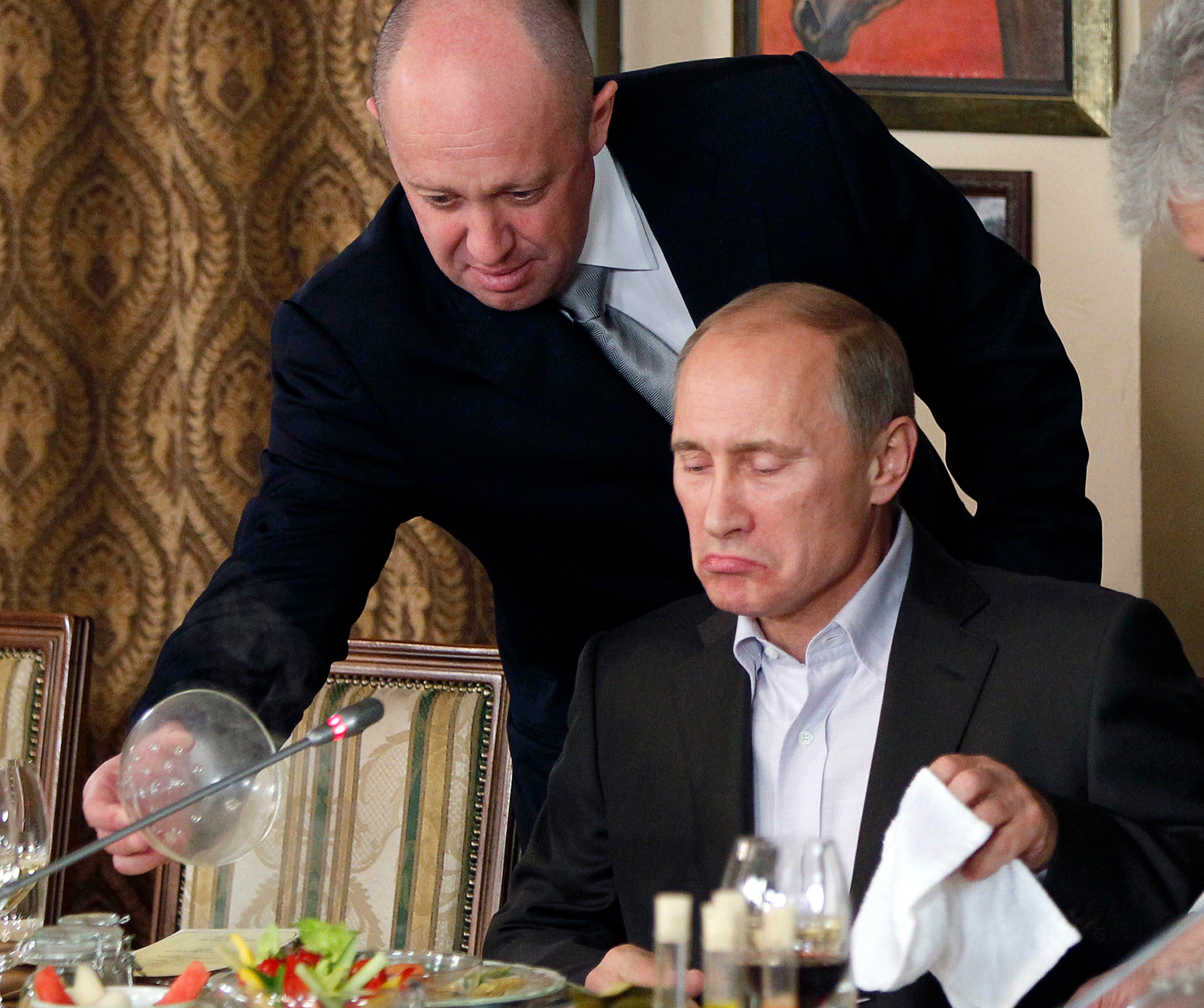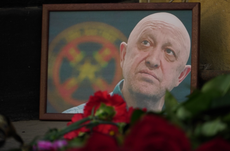Wagner Group: Timeline of Yevgeny Progozhin’s private army as leader ‘killed in plane crash’
Yevgeny Prigozhin, known as Putin’s chef because he formerly provide catering services to the Kremlin, is reported dead in plane crash northwest of Moscow
Your support helps us to tell the story
From reproductive rights to climate change to Big Tech, The Independent is on the ground when the story is developing. Whether it's investigating the financials of Elon Musk's pro-Trump PAC or producing our latest documentary, 'The A Word', which shines a light on the American women fighting for reproductive rights, we know how important it is to parse out the facts from the messaging.
At such a critical moment in US history, we need reporters on the ground. Your donation allows us to keep sending journalists to speak to both sides of the story.
The Independent is trusted by Americans across the entire political spectrum. And unlike many other quality news outlets, we choose not to lock Americans out of our reporting and analysis with paywalls. We believe quality journalism should be available to everyone, paid for by those who can afford it.
Your support makes all the difference.Yevgeny Prigozhin, head of Russia’s Wagner mercenary group, is reported to have been killed in a plane crash northwest of Moscow - exactly two months after leading a short-lived and unsuccessful mutiny against president Vladimir Putin.
The plane crash which happened near the village of Kuzhenkino, northwest of Moscow, during a flight from Moscow to St Petersburg on Wednesday evening. Western intelligence agencies believe that Putin may have had a hand in downing the aircraft.
The Wagner Group has become best known for its involvement in Russia’s illegal invasion of Ukraine, but the private army, which Prigozhin claimed had 25,000 soldiers at the beginning of the war, has been around since 2014 and has been involved in several other conflicts.

Here, The Independent takes a look at Wagner’s involvement in other countries, when it got involved in Ukraine and the events surrounding Prigozhin’s failed mutiny back in June, which sent shockwaves through Russia.
2014 - Wager group is founded by Prigozhin
Prigozhin, a wealthy businessman known as Putin’s chef because he provided catering services to the Kremlin, said he founded the group back in 2014 and it was involved in Russia’s invasion and annexation of the Crimea peninsula from Ukraine.
Wagner forces have been involved in Syria’s civil war since 2015, supporting pro-government forces and oil fields. The group has had a growing presence in Africa in recent years and has been detected in Libya, Sudan, the Central African Republic and Mail.
28 March 2022 - mercenaries are deployed to Ukraine
Britain’s Ministry of Defence (MoD) first reported that Wagner had been deployed in Ukraine on 28 March 2022, just a month into the Kremlin’s invasion – after Russian losses had already begun to hamper the pace of the initial assault.
But some reports suggest they had been involved since the beginning of the invasion on 24 February.
Military consultant Nicholas Drummond told The Independent: “Wagner was involved from the start but the group started to become a key player when the initial assault ran into difficulty.
“By the end of March, it was very evident that the invasion had gone wrong. Putin used Prigozhin as a troubleshooter and Wagner was there to fill the gaps.”

14 April - Prigozhin calls for end to war
Prigozhin urges Putin to end the war and to tell the Russian people that the country had achieved the aims of its “special military operation.
He claimed that Russia had taken a “fat chunk” of Ukrainian territory, and that the most strategic route for its armed forces - who have suffered severe losses - would be to defend existing gains.
His comments, which came in a rambling statement posted online, marked the first time a senior figure in the war publicly called for the Kremlin to stop the war.
Over the next few months - and up until the weeks before his reported death - he would go on to repeatedly criticise the Kremlin’s strategy in the war and complain about the number of troops he was losing.
4 May - Prigozhin rages at top military brass
Prigozhin launches blistering attack on Russia top military brass after suffering heavy losses on Bakhmut.
In an expletive-ridden video, recorded in a field littered with corpses, blamed the Kremlin for the deaths.
“These are Wagner lads who died today. The blood is still fresh,” he says, pointing to roughly three dozen bodies he says are Wagner fighters.
“They came here as volunteers and are dying so you can sit like fat cats in your luxury offices.”
20 May - Wager claims it has taken Bakhmut
Wagner claims that its forces have taken control of the city of Bakhmut after the longest and most grinding battle of the Russia-Ukraine war, but Ukrainian defense officials dismiss claims as false.
In a video posted on Telegram, Wagner head Yevgeny Prigozhin said the city came under complete Russian control at about midday Saturday. He spoke flanked by about half a dozen fighters, with ruined buildings in the background and explosions heard in the distance.
However, after the video appeared, Ukrainian deputy defence minister Hanna Maliar said heavy fighting was continuing.
25 May - Wagner troops leave Bakhmut
Russia’s Wagner mercenary group has started withdrawing its forces from the Ukrainian city of Bakhmut and transferring its positions there to regular Russian troops, its founder Yevgeny Prigozhin said in a video published on Thursday.
"We are withdrawing the units from Bakhmut. From today at five in the morning, May 25 until June 1, most of the units will rebase to camps in the rear. We are handing our positions to the military," he said.
23/24June - Prigozhin leads rebellion against Kremlin

Prigozhin leads rebellion against the Kremlin and demands the sacking of defence minister Sergei Shoigu, who he blames for Russia’s faltering campaign in Ukraine
Thousands of Wagner fighters move rapidly from Russia’s south towards the capital in a "march for justice", reportedly making it to within 120 miles from the city before Priogozhin calls off their advance.
27 June - Belarus president claims he convinced Prigozhin to call off mutiny
Alexander Lukashenko says that he convinced Prigozhin in an emotional, expletive-laden phone call to end the mutiny.
Under a deal brokered by Lukashenko, an old friend, Prigozhin abandoned what a "march for justice" by thousands of his men on Moscow in exchange for safe passage to exile in Belarus.
6 July - Prigozhin ‘free’ man in St Petersburg
Lukashenko says Prigozhin is in St Petersburg and a "free" man - despite staging rebellion weeks earlier.
The Belarusian leader said then "maybe he went to Moscow, maybe somewhere else, but he is not on the territory of Belarus".
18 July - Prigozhin welcomes troops to Belarus
Wagner chief appears in video allegedly showing him welcoming his troops to Belarus.
27 July - Images suggest Wagner chief attended meeting in St Petersburg
Images posted online appear to show Prigozhin attending a meeting in St Petersburg, where Putin was also in attendance for the Russia-Africa summit.
22 August - Prigozhin posts final video before reported death
In the video, Mr Prigozhin was seen toting an assault rifle and wearing military fatigues, with his comments suggesting the clip was shot in an unnamed African country.
The Wagner boss said during the clip that he is recruiting “strongmen” and said the group will “fulfil the tasks that were set” by the Russian government.
The video was shared on Telegram channels affiliated with the Wagner group, as Mr Prigozhin said the mercenary group was “making Russia even greater on all continents, and Africa even more free”.
23 August - Prigozhin reportedly killed in plane crash
Prigozhin is presumed dead after being named among passengers on a private jet that crashed into a field near Moscow with no survivors.
Kremlin stays silent on plane crash throughout the following day.




Join our commenting forum
Join thought-provoking conversations, follow other Independent readers and see their replies
Comments